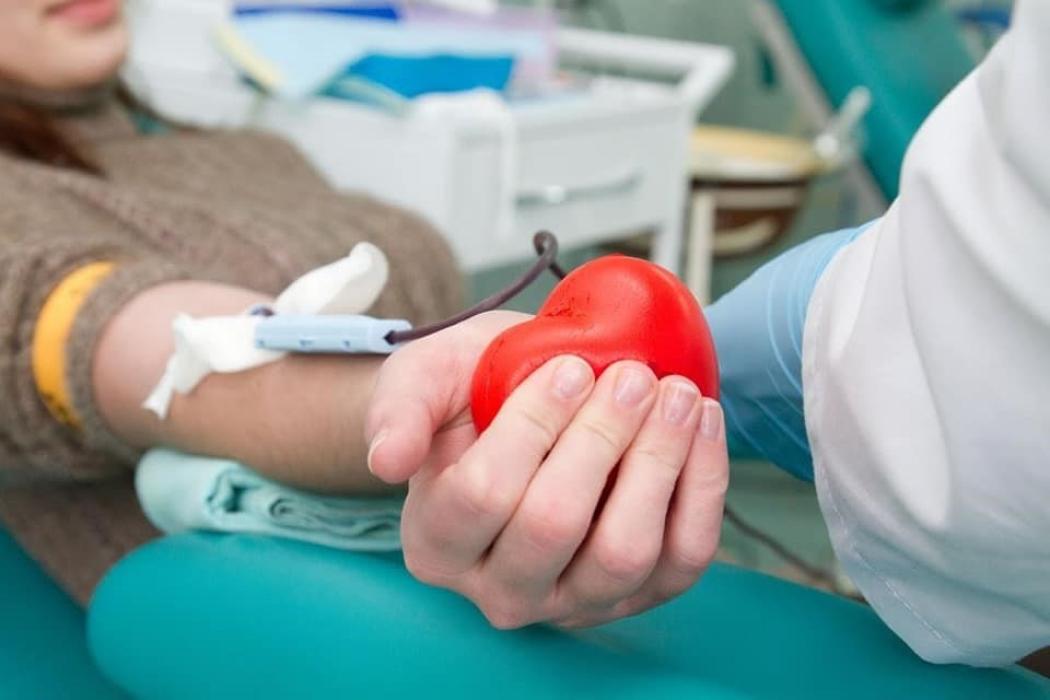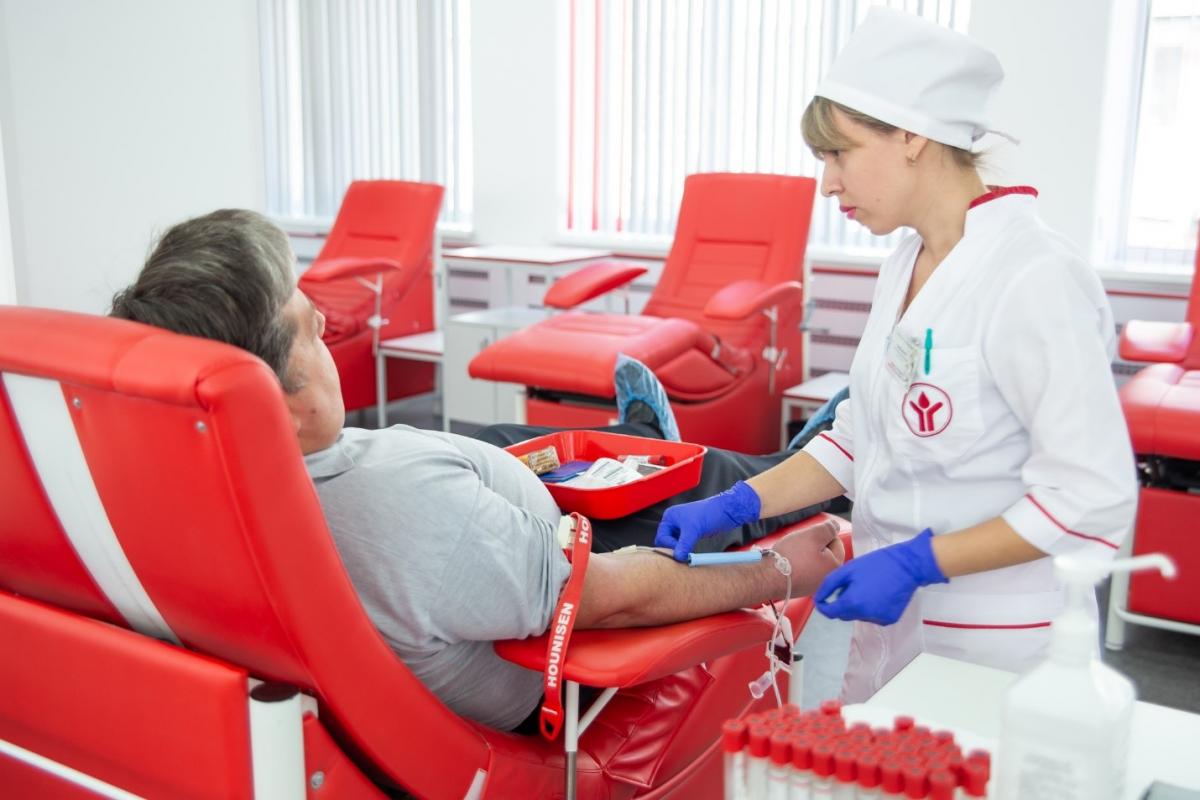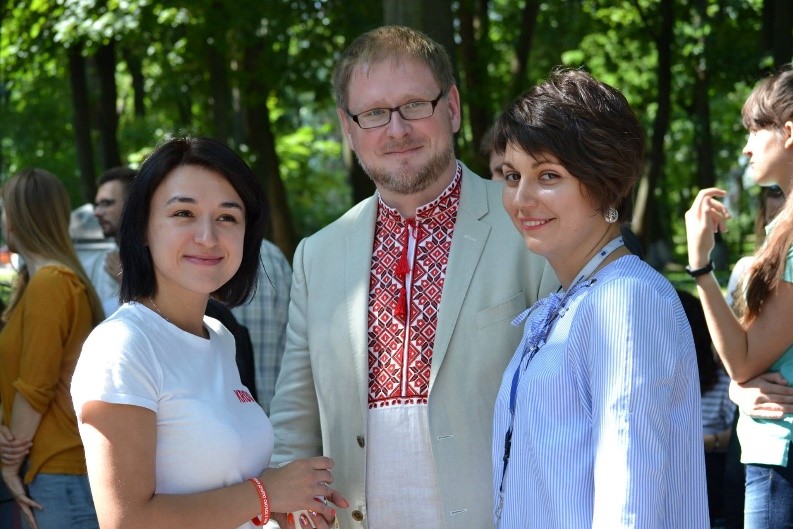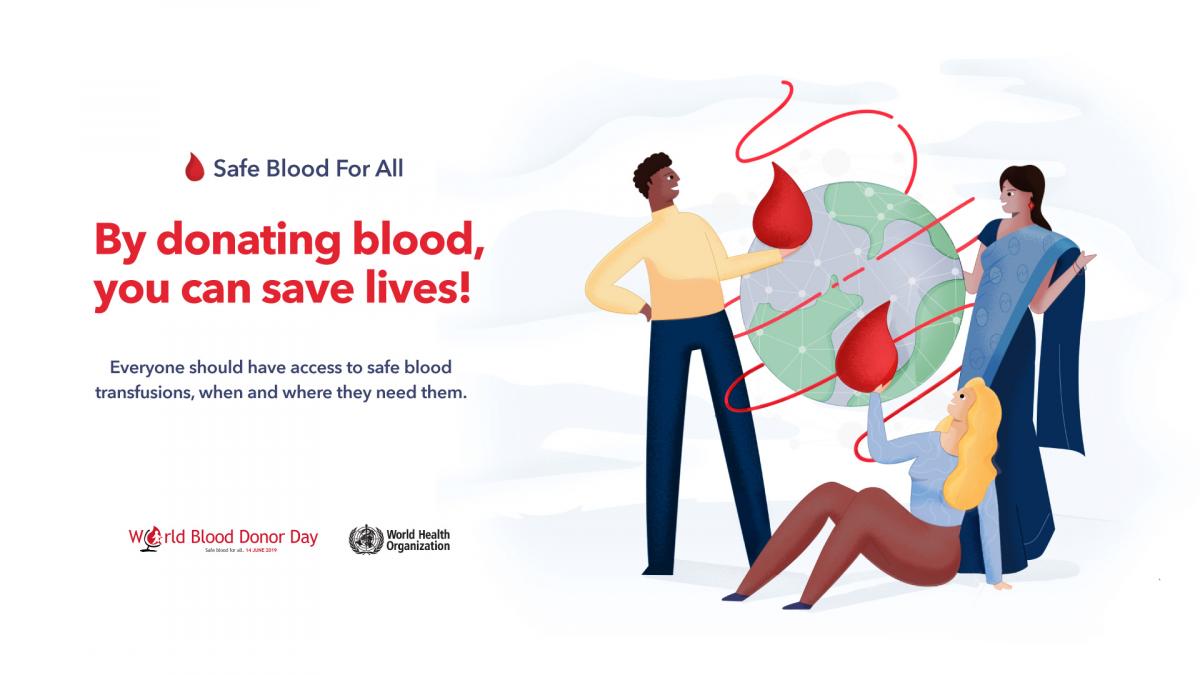For Health Workers Behind the Scenes, Ukraine Works to Improve Access to Safe Blood for All

Blood services in many countries find it challenging to ensure the availability of sufficient blood and blood products, while at the same time maintaining quality and safety. Photo courtesy of the Kyiv City Blood Center.
Across the globe and around the clock, health workers need blood to save lives. In fact, according to the World Health Organization (WHO), the transfusion of blood and blood products saves millions of lives every year. Whether it’s a woman who is suffering from bleeding associated with pregnancy or childbirth, a child suffering from severe anemia due to malnutrition and malaria, a man gravely injured in a traffic accident, or countless others who suffer from a broad range of maladies, the need for a safe blood supply is universal. Sadly, access is not.
Iryna Slavinska, head of the Blood Security and Donorship Department at the Ukrainian Ministry of Health’s Center for Public Health, knows that the current number of voluntary blood donors is insufficient for the country’s needs.
“According to WHO recommendations, we should have 33 donations per every 1,000 people, but we now have only 11.28—fewer than half of what we actually need,” Slavinska says. “In addition, we still have an outdated and ineffective blood system inherited from the Soviet Union,” she continues, citing decentralization, systems, and processes that make it inconvenient for individuals to donate blood, and ongoing staff, technology, and financing shortages as just a few of the many challenges they face.
Ukraine has been working to transform its blood system—including its approach to raising awareness about the importance of maintaining an adequate, safe supply of blood and blood products through voluntary nonremunerated blood donor campaigns—for the past seven years with support from the U.S. President’s Plan for AIDS Relief (PEPFAR) and the U.S. Centers for Disease Control and Prevention (CDC) through a project implemented by the American International Health Alliance (AIHA). While much of the project’s work has been strengthening blood system and human resource capacity behind the scenes, building a culture of routine voluntary nonremunerated blood donation is critical for ensuring health workers have access to a safe supply of blood and blood components to meet the needs of their patients.
In February 2019, this long-term effort culminated in the government’s adoption of a strategy for the development of the country’s national blood system designed to radically change the existing system and align it with European Union standards.

Blood is the gift of life, so in the week leading up to World Blood Donor Day on June 14, the Kyiv City Blood Center is hosting a broad range of activities designed to raise awareness about the need to donate now, and throughout the year! Photo courtesy of the Kyiv City Blood Center.
Kyiv City Blood Center Leads the Charge
“Today, Kyiv’s city-wide blood system can be considered the most successful example of our blood system reform implementation,” says Oleksandr Serhiienko, director of the Kyiv City Blood Center.
“This would not have been possible without the full support of our local and national authorities, as well as the technical assistance we received from CDC and AIHA,” Serhiienko continues, explaining that the Center operates as a coordinating hub that provides central collection, testing, processing, storage, distribution, and transportation services for a network of 29 hospital blood banks throughout the city.
“In order to provide our network hospitals with the necessary amount of blood components, we had to greatly intensify our work to engage voluntary donors—not just once, but on an ongoing basis,” Serhiienko says.
“We’ve increased our community-level engagement significantly,” he continues, explaining that the Center conducted blood drives at 133 community businesses and other organizations in 2018.

Iryna Slavinska, Oleksandr Serhiienko, and Oksana Muliarchuk, pictured here at a Ministry of Health blood drive, are on the frontlines of blood safety reform in Ukraine. Their work helps ensure an adequate and safe supply of blood is available at hospitals in Kyiv and throughout the country. Photo courtesy of AIHA/Ukraine.
According to Oksana Muliarchuk, Deputy Director for Quality Assurance of Medical Services at Kyiv City Blood Center, health workers on staff routinely make presentations and provide information to local organizations. They’ve also improved online outreach, both through their website and social media platforms like Facebook and Instagram, which are constantly updated with useful information for donors and news about upcoming blood drives to make it more convenient to give blood.
“We’ve strengthened the Center’s collaboration with civil society organizations, including the Ukrainian Red Cross Society and DonorUA, which helps us to organize corporate blood drives and Saturday Donor Days, as well as find donors for specific patients should the need arise,” Muliarchuk says.
Their strategy was a success.
“The Kyiv City Blood Center increased the amount of blood donations, bringing our numbers up from 14,800 units collected in 2017 to 20,455 units in 2018 with almost 90 percent of these being from voluntary unpaid donors. This averages seven donations per every 1,000 people in Kyiv, which is significant progress for us,” Serhiienko reports, noting that the plans for this year are even more ambitious.
“Thanks to the AIHA project, I understand the necessity of a quality management system and how to develop an implementation model, which has been a huge step forward for recruiting of voluntary unpaid blood donors,” Muliarchuk says. “The project has made a real difference in the knowledge and technical skills of our medical staff. As a result, Ukraine has greatly improved access to safe supplies of blood and blood components for people in need.”
In celebration of World Blood Donor Day (June 14), Ukraine’s Ministry of Health and Public Health Center are conducting a series of events at the Kyiv City Blood Center and other locations starting on June 10.
“Our goal is to raise awareness about our country’s inadequate supply of blood and increase the numbers of people who volunteer to give blood,” Slavinska concludes. “We’ve invited celebrities and local politicians to give blood and drum up support for our cause throughout the week and drive home this year’s theme of Safe Blood for All – not just this week, but every day of the year.”

